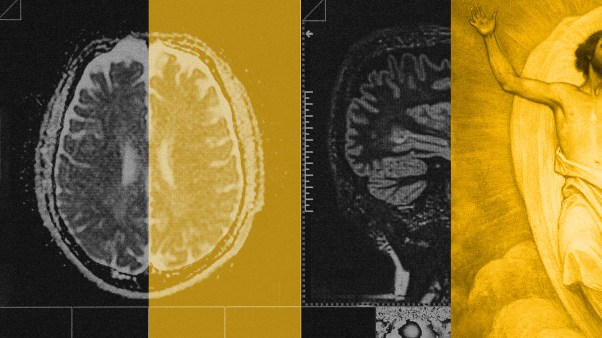In 1980 I decided to visit my uncle in Oregon, and this worried my fiance. She thought I was vulnerable. Having been a Christian less than a year, I would be visiting a Mormon relative who had already converted several family members, including my grandmother.
So Karen loaded me up with various articles and books. After reading up on Mormonism, I wondered, How could anyone take this religion seriously? Its theology is inconsistent and derivative; its historicity questionable; and its sociological dynamics easily explained. Then I went to Oregon.
Uncle Otto is a great guy. Two sons from his pre-Mormon marriage lived nearby, and with their pleasant wives and well-nurtured children they made perfect “Welcome to Mormonism” postcards. My uncle and his wife had adopted or birthed seven more children. Uncle Otto never pressured me about his faith but patiently answered my questions. When I was leaving he said, “Mick, as long as you continue searching for the truth, I think you will end up a Mormon.”
A few years ago I visited the Mormon bookstore at Temple Square in Salt Lake City. What I found was eerily familiar. Every category we have in Christian bookstores had its counterpart here: surveys of South American archaeology that acted as “evidence that demands a verdict”; commentaries and apologetical texts; histories and biographies (including those of sports stars and other celebrities); fiction; and especially books on lifestyle evangelism.
On his recent flight to Salt Lake, our cover story’s author, associate news editor John W. Kennedy, sat next to a returning Mormon missionary. John told him the kind of story he was doing, and the missionary didn’t get upset; instead, he shared his faith. The same thing happened when John interviewed apostle M. Russell Ballard about the hordes of Southern Baptists due to descend on his town (see story beginning on p. 24): Ballard shared his faith. And when our photographer Steve Sonheim took pictures in Temple Square, four different, pleasant, eager young people started conversations about “spiritual things” with him.
What does it say about all our evangelical successes—growth statistics, vibrant publishing, dynamic parachurch ministries, solid educational institutions, and healthy, evangelizing congregations—when they are duplicated or outdone by this false religion? It means we cannot place our confidence in these markers, no matter how impressive they may be. It means that very little separates us from Mormons, except this: communion and truth. The living God has met us, made us his own, and revealed his truth to us through his Word. Everything else is only a prop.
Copyright © 1998 Christianity Today. Click for reprint information.










